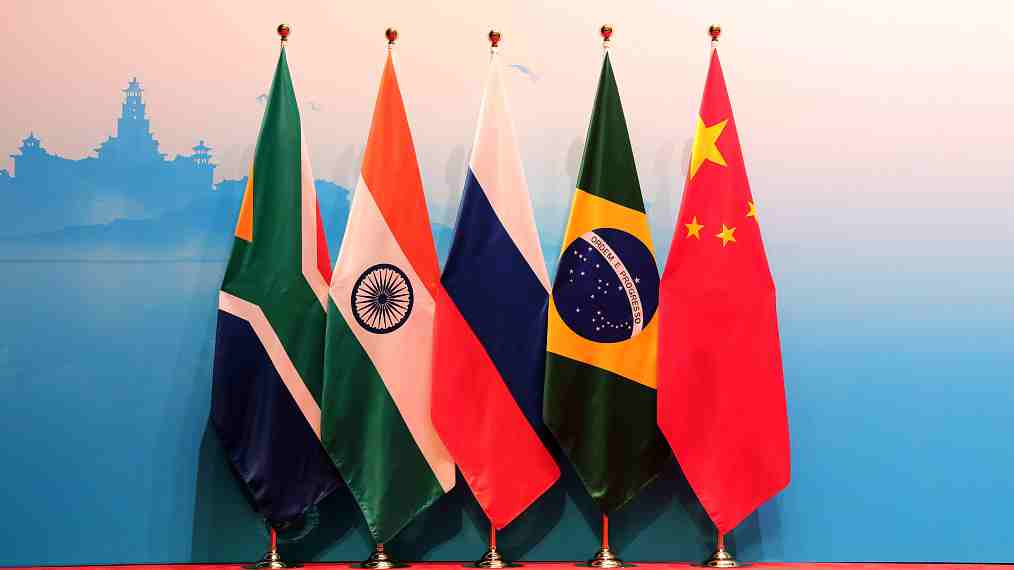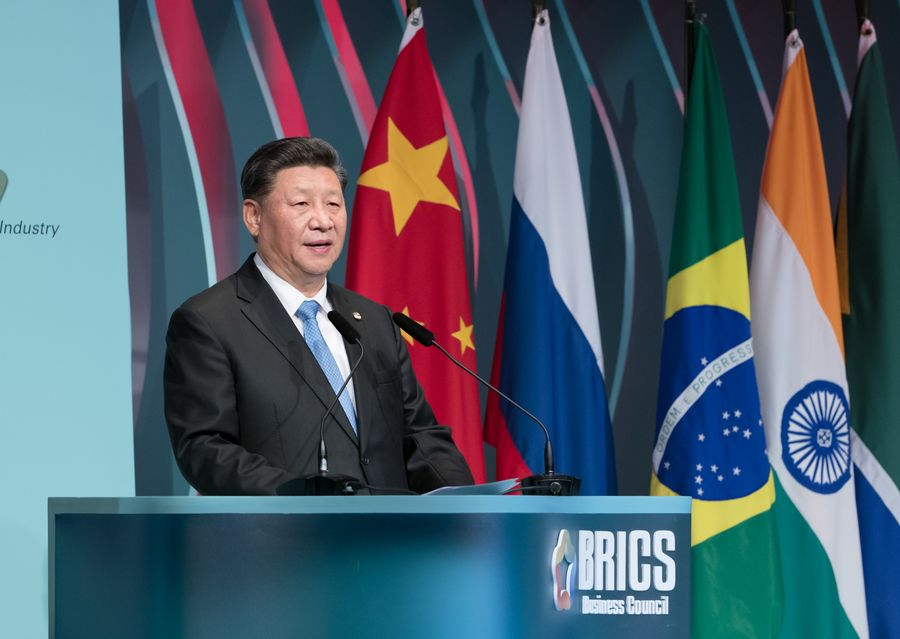
The national flags of BRICS, Xiamen, China, Sept. 7, 2017. /VCG Photo
The national flags of BRICS, Xiamen, China, Sept. 7, 2017. /VCG Photo
Editor's note: David Lee is a consultant and author based in Beijing who focuses on energy, health, international politics and international development. The article reflects the author's opinions, and not necessarily the views of CGTN.
BRICS 2019 is underway in Brasilia as Brazilian President Jair Bolsonaro plays host to the gathering of the world's five biggest emerging economies for the first time since taking office in January.
Over a decade since its inception in 2009 at the crossroads where Asia meets Europe in Yekaterinburg, Russia, BRICS has made a credible list of achievements: embracing South Africa, the biggest economy in the African continent, as a formal member; setting up the New Development Bank (NDB) as a new multilateral bank to address unmet development needs by offering support for public and private projects; and establishing the Contingent Reserve Arrangement (CRA) to provide liquidity support in response to actual or potential short-term balance of payments pressures.
By making such achievements against all odds, not the least the rising protectionist wave and the blows suffered by multilateral arrangements in recent years, BRICS countries are making a strong restatement about the need for common prosperity based on a fair and just global system.
What is BRICS about? What does BRICS represent? Western pundits have long argued that BRICS is irrelevant because the member countries are so divergent in terms of their individual economic trajectories. On the contrary, BRICS is extremely relevant in today's world, because it is about giving voice to emerging economies and the global south at large and it represents a key force that buttresses multilateral arrangements with the United Nations and the World Trade Organization at the core.

Chinese President Xi Jinping speaks at the closing ceremony of the BRICS business forum in Brasília, Brazil, Nov. 13, 2019. /Xinhua
Chinese President Xi Jinping speaks at the closing ceremony of the BRICS business forum in Brasília, Brazil, Nov. 13, 2019. /Xinhua
To discredit BRICS, Western pundits describe it as an odd party consisting of incompatible players. Well, such description may well be reserved for the Group of Seven (G7) countries. As the world's only superpower is quitting and disrupting multilateral arrangements, the shattered G7 does not offer a common agenda whatsoever on the most crucial challenges that the world faces, be it climate change or trade policies.
In contrast, from the perspective of emerging economies and the developing south, BRICS offers a clear message of multilateral cooperation. More importantly, BRICS countries are continuing their meaningful discussions and experiments that contribute to a fair and just global system.
Building on NDB and CRA success stories, BRICS thought leadership is sharing insights on a potential local currency bond fund to facilitate transactions using local currencies instead of the U.S. dollar between the member states.
A local currency bond fund backed by the world's biggest emerging economies will be a game changer to modify the global imbalance resulting from the U.S. dollar's supremacy. Of course, to materialize such a big thinking, a combination of patience, strategy, tactics, and coordination is needed.
In the long run, BRICS is capable of offering such a gift to the world, by which BRICS will defend against unilateralism efficiently by adding a robust layer of multilateralism.
On top of the longer-term, strategic potential, BRICS has already built up a new united front for security cooperation. Emerging cooperation is taking place among BRICS countries to fight against transnational crimes in the form of drug trafficking, cyber attacks, money laundering, corruption, and terrorism, among others.
The fact that BRICS countries are working with each other on security-related issues despite different political systems sends out an encouraging signal that BRICS is growing into a more robust and mature group.
Building on a decade of collaboration, BRICS has proven its resilience and relevance. In the years to come, considering the many big challenges posed by the imbalance of the current world, BRICS has a huge task ahead as it advances the common prosperity by representing emerging economies and the global south.
(If you want to contribute and have specific expertise, please contact us at opinions@cgtn.com.)